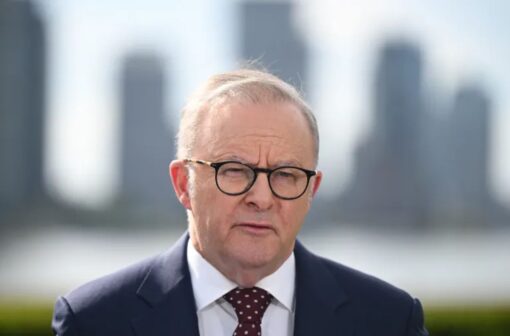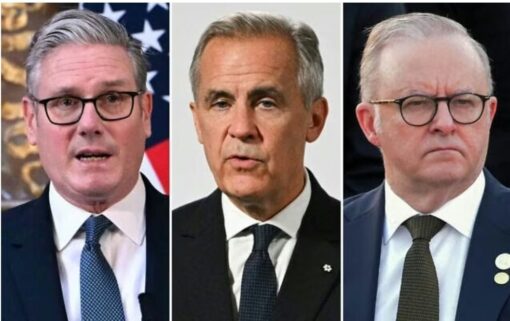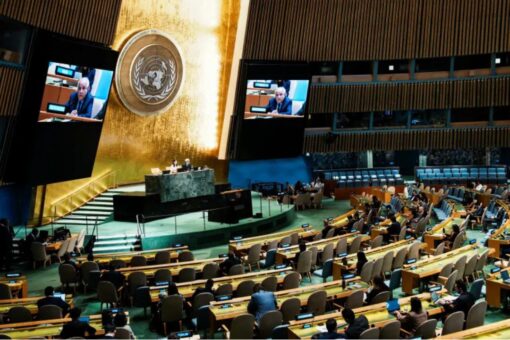The decision by several Western governments to formally recognise Palestine has ignited one of the most intense debates in recent years about global diplomacy, accountability, and moral responsibility.
While supporters frame the move as a long overdue step toward justice and the two-state solution, critics dismiss it as political theatre—an effort by leaders to salvage credibility in the face of growing international outrage.
At the heart of the conversation lies a crucial question: is Palestine recognition rooted in principle, or is it an exercise in saving face for Western capitals that stood by silently during years of escalating conflict?
In London, where the United Kingdom’s announcement of recognition sparked waves of discussion, senior ministers insisted the decision was based on a moral imperative.
One government official described it as “the clearest signal yet that we support peace, dignity, and justice for both peoples.” Yet even as such words were delivered, many observers noted that the timing seemed too convenient, coming after months of relentless criticism of Western silence during the war in Gaza.
A former diplomat put it more bluntly: “This is less about justice for Palestinians and more about repairing reputational damage. Palestine recognition has become the cheapest way for leaders to show they are listening.”
The pattern has been echoed in Canberra and Ottawa, where Australia and Canada followed suit. Both governments highlighted the recognition as a contribution to peace, but civil society groups were quick to argue that these announcements were politically motivated.

“It’s an act of self-preservation,” said a campaigner with a human rights organisation in Sydney. “After years of backing policies that enabled occupation and violence, leaders suddenly want credit for standing on the right side of history. Palestine recognition cannot erase their complicity.”
Such comments underscore the suspicion that Western governments are more concerned about global perception than about genuine change on the ground.
In Washington, the Biden administration has so far resisted formal recognition, though it has signaled support for Palestinian self-determination.
Yet the pressure on the United States is growing, as allies move forward and domestic critics accuse Washington of shielding Israel while offering symbolic rhetoric to Palestinians.
A senior academic at a New York university explained, “for America, Palestine recognition carries geopolitical consequences. But for other Western states, it’s a much easier symbolic gesture that makes them look progressive without having to invest real leverage. That’s why we see this wave of recognition happening outside Washington first.”
The implication is clear: recognition becomes a low-cost way for leaders to appear aligned with global sentiment while avoiding direct confrontation with Israel.
Supporters of recognition, however, argue that dismissing it as mere symbolism misses the point. In their view, formal recognition strengthens the legitimacy of Palestinian statehood, creating legal and diplomatic pathways for negotiations.
One European lawmaker stressed, “symbolism matters in diplomacy. If you deny Palestine recognition, you deny its people equality on the world stage. If you grant recognition, you bring them closer to the table.”
For activists long engaged in Palestinian solidarity movements, even symbolic recognition has real value because it chips away at the status quo. “Every step toward recognition is a step away from permanent occupation,” said one activist during a rally in Dublin. “It may not solve the crisis today, but it shifts the conversation irreversibly.”
The divide between symbolism and substance has been central to the debate. Critics warn that without concrete action—such as imposing sanctions on settlement expansion or conditioning arms sales—recognition alone is hollow.
“We’ve seen this playbook before,” argued a political analyst in Paris. “Leaders issue grand statements, secure positive headlines, and then quietly return to business as usual. Palestine recognition is the easiest box to tick because it doesn’t demand immediate sacrifice.” From this perspective, recognition functions more as a public relations strategy than as a policy tool.
Palestinians themselves have responded with mixed feelings. While many welcomed the recognition as an overdue affirmation of their rights, others expressed skepticism about Western motives.
A Palestinian writer in Ramallah remarked, “It is insulting to hear governments congratulate themselves for recognising our existence, as if we have not existed for decades. If recognition comes only when Western leaders are under pressure, then it is not solidarity, it is self-interest.”
His words reflect a widespread frustration that the international community often waits until public outrage peaks before taking even the smallest symbolic steps.
The Israeli government has condemned the recognitions, warning that they undermine direct negotiations and reward what it calls unilateral actions.
Officials in Tel Aviv insist that only bilateral talks can resolve the conflict, accusing Western states of pandering to domestic audiences. “Recognition without negotiation is empty politics,” said one Israeli spokesperson, adding that it “encourages extremism instead of fostering compromise.”
Yet this argument has done little to stop the momentum, as more Western parliaments debate recognition and activists mobilize to demand that their governments follow suit.
Underlying all of this is the profound credibility crisis facing Western leadership. After decades of championing democracy and human rights abroad, many governments appeared paralyzed during the most recent Gaza war, offering muted calls for restraint while thousands of civilians were killed.
The sudden turn to Palestine recognition has therefore been interpreted as a belated attempt to repair reputations. “It’s a classic case of too little, too late,” commented a veteran Middle East journalist. “You can’t spend months defending inaction and then expect applause for recognition. People see through it. This is about saving face, not saving lives.”

Still, the political calculus is undeniable. In Europe, public opinion has shifted dramatically, with polls showing majorities supporting Palestinian statehood. Leaders who once avoided the issue now face mounting electoral pressure.
One strategist in Berlin admitted, “you cannot govern effectively while ignoring the outrage on the streets. Palestine recognition is the bare minimum we can offer to show we are listening.” In this sense, recognition becomes not only a foreign policy act but also a domestic survival strategy.
The debate now moves toward whether recognition will lead to tangible outcomes. Will it compel new negotiations, alter Israeli policy, or give Palestinians greater leverage in international forums?
Or will it fade into another symbolic gesture remembered only as a political maneuver? For many, the answer lies in whether recognition is followed by concrete measures that challenge the status quo.
“Words are not enough,” a Palestinian civil society leader warned. “If recognition is not accompanied by action, it will be remembered as another empty promise made at our expense.”
Ultimately, the recognition wave captures both the power and the limits of symbolism in global politics. On one hand, it affirms Palestinian identity and strengthens international consensus.
On the other, it exposes the fragility of Western credibility and the ease with which symbolism can be wielded as a tool of self-preservation.
Whether Palestine recognition marks the beginning of genuine change or merely another chapter of political face-saving will depend on what comes next.
For now, it stands as both a moral statement and a mirror reflecting the contradictions of Western diplomacy.


